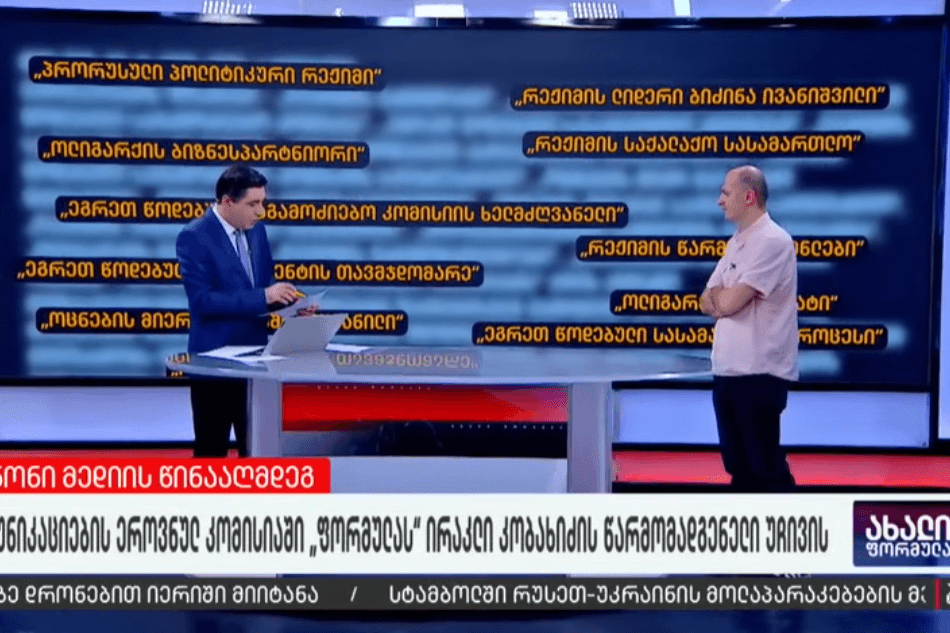Georgian media regulator says opposition TV channels violated law by using anti-government language

The Georgian Communications Commission has found two opposition TV channels to be in violation of the law after complaints from Georgian Dream accused them of breaching coverage standards due to anti-government statements.
According to TV Pirveli and Formula, the commission announced its decision on Thursday. However, despite finding the two outlets at fault, it did not penalise the TV companies.
This announcement set a precedent for the enforcement of yet another restrictive law adopted on 1 April by Georgian Dream and its allies. The legislation regulates coverage standards for broadcasters both on air and on their social media platforms.
In the complaints filed in June, Georgian Dream objected to specific terms used on air by journalists and on the channels’ social media pages to describe the government, its representatives, and the Georgian judiciary. These included phrases such as ‘illegitimate parliament’, ‘so-called parliament speaker’, ‘oligarch’s MP’, ‘regime’s city court’, and ‘regime prisoners’.
‘The journalist’s phrases [...] are personal assessments/accusations that are not separated from facts. Distinguishing between fact and opinion is an important standard in journalism’, the complaint stated.
The commission has not yet published the reasoning behind its decision.
Another opposition broadcaster, Mtavari Arkhi, which was also sued by Georgian Dream, has not yet released any information regarding the commission's decision. The channel ceased broadcasting in May and has continued only with online content.
Representatives of Georgia’s civil society have emphasised that many of the regulations presented in the newly-passed law are drawn from the currently existing code of conduct for broadcasters.
Under the previous legislation, the authority to respond to violations of broadcasting standards lies with self-regulatory bodies within the broadcasters themselves. However, according to the new amendments, the same authority was also granted to a state body — the National Communications Commission.
This means that any interested party can file a complaint directly with the state body against a specific TV channel — as Georgian Dream has done against the opposition-aligned broadcasters.
The punitive measures the commission can take against a broadcaster are varied, and include warnings, orders to correct content, financial penalties, and, in certain cases, suspension of the broadcasting license.
Georgian Dream fast-tracked their adoption of restrictive legislation after the start of anti-government protests in late November 2024, which were sparked by the ruling party’s announcement that it was halting the country’s EU membership bid.
The restrictive laws are being passed in a parliament where opposition is virtually nonexistent, having vowed to boycott the legislative body following the disputed 2024 parliamentary elections, before being expelled en masse from parliament by Georgian Dream.
Since then, the ruling party has been initiating and passing new restrictive legislations without any obstacles, targeting the media, civil society, and other critics.











